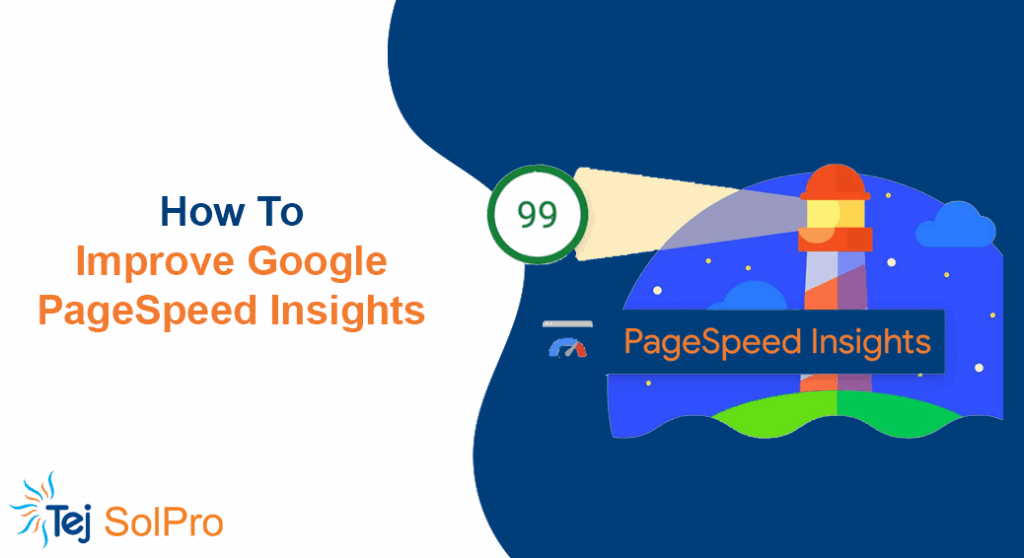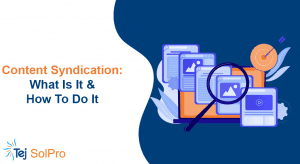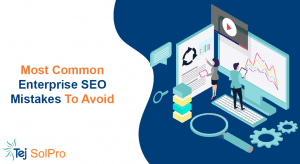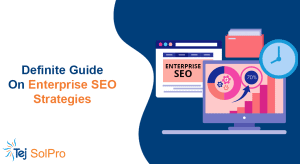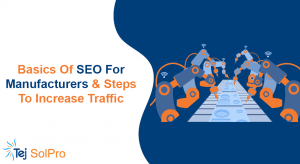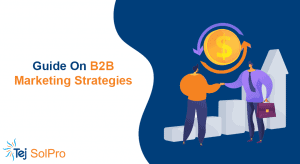There’s one simple rule of online business – If your website is slow, then your visitors will be low too!
Why so?
Well, ask yourself. Do you ever like to wait for anything?
I think you’ve got the answer. No one likes to wait; everyone one wants to get hold of things as soon as possible.
Similarly, website speed plays an important role in businesses that are present on online platforms. It strongly impacts your SEO and conversions. A slow website might cost you a lot of visitors. Even your bounce rate is likely to increase as visitors come and leave your website due to slow loading pages.
If you’re still looking for answers to how to improve your PageSpeed insights. Then you’ve landed at the right place. Here we’re going to give you an overview of Google PageSpeed Insights Score.
So here we go,
Contents
- 1 What is Google PageSpeed Insights?
- 2 Website Loading Speed: Why It Matters
- 3 How To Use Google PageSpeed Insights
- 4 Improve Google PageSpeed Insights Score
- 5 Conclusion
What is Google PageSpeed Insights?
If you’re struggling with low website speed, then you must definitely opt for Google PageSpeed Insights. It’s considered to be one of the topmost tools for improving your website speed. This tool detects the exact problem and also lets you make necessary changes for boosting your site.
Here, you’ll have the opportunity to test your page’s speed through the viewpoint of both desktop and mobile. Lastly, you’ll have a PageSpeed Insights report that will provide you with some suggestions for enhancing your Google page speed.
What Do You Consider As A Good Google Page Speed Score?
The best indicator of your site’s performance is its loading time. Talking about Google, it has divided the score as follows.
O to 49 – Poor Score
50 to 89 – Average Score
90 to 100 – Good Score
Website Loading Speed: Why It Matters
As we have already mentioned above why website loading speed is important, now let’s dig deeper and know why it really matters.
Effects On Conversion Rate
Your conversion rate can be hugely affected by your site’s speed. Out of many goals that businesses have, one of them is earning conversions. But, with a slow loading page, you’re never going to attract any leads that would convert.
On the contrary, If you had a fast loading page, it would have a huge positive impact on your conversions. A fast loading page would help you get more visitors that would convert. The reason lies in the fact that pages load faster and also guide visitors in a better way.
As we have already mentioned, how your page speed could have a huge impact on your conversion rate, in the similar way it affects your profits too. A slow-loading website could cost you thousands of dollars in a day.
Even a second slower website or page than the competitor could lead you to lose prospective profits. It’s extremely essential to invest in your website for making it run faster as it will help you a lot in generating good leads and profits.
First Impression Is The Most Important For Business
No matter if it’s business or something else, the first impression is always the last. So, when a user visits your website for the first time make sure that the website is working fine, the pages are loading fast.
Because, these are the points that will help in building a repo with the audiences and ensuring them that your business is authentic and dependable too.
If you want your audiences to look towards you as a dependable business, then you must make sure that your page is working rapidly. It will definitely have a positive effect on your audiences. Not only that, but if they like your website, they’ll be coming back to you.
Audiences Dislike Slow-loading Pages
Now that the internet has grown to this level, people are generally expecting a faster loading speed from websites. Visitors wouldn’t wait much longer, they expect your site to load in just some seconds as they wish to acquire the information asap.
With this, you can understand that slow-loading websites or pages are bound to lose many leads. Visitors would never like to wait for your pages or website to load. So, if your website is slower than your competitors, then your leads will definitely go to your competitors with faster loading pages and websites.
The importance of page speed intensifies when it’s for your cellphone users. Generally, people use cellphones for getting their answers quickly. For this reason, you must make sure that your website pages are loading faster. This will surely be useful in keeping your audiences on the site and also making them come back to know more about your business.
Influence On SEO Ranking
Page speed acts as an essential element when you’re dealing with SEO (Search Engine Optimization). According to Google, page speed is an essential element for users. Furthermore, it considers page speed as the top-ranking factor for people using SEO.
There are hardly any chances of Google ranking your website for more leads if it takes too much time to load. But, if your website is a fast-loading one then there are higher chances of improvements in your SEO ranking.
Impact On Your Quality Score
If you have a PPC campaign, then your page speed will have a major impact on your ad’s quality score. In the process of creating a PPC campaign, your quality score and the maximum bid will decide the position of your ad and also improve your cost per click (CPC).
Remember, page speed has a great impact on several extensions of your website. So, you must pay attention to get your page run faster in order to ensure that all other campaigns of yours are working steadily.
How To Use Google PageSpeed Insights
Let’s have a look at how to use Google PageSpeed Insights,
Foremost, you’ll have to visit the PageSpeed Insights tool:
Now, you’ll have to put the URL of a web page. It doesn’t matter if you’re not using the homepage or root domain.
Once you’ve entered the link, the PageSpeed Insight tool will calculate the scores and provide you with some recommendations.
Remember, here you’ll be provided with the scores for cell phones. If you want to have a look at the desktop ones, you can do so with the tab at the top left of the page.
Now, It’s time to understand what you’ve just seen above. Here is an explanation of the terms used in the Google PageSpeed Insights tool.
Field Data
Field data tell you about how well the page has performed in the last 30 days in comparison with the Chrome User Experience Report. It is a group of performance metrics collected from the users of Google’s Chrome browser.
It is extremely essential to know that field data is collected from the actual users of Chrome. But there could be instances where there wouldn’t be much data. In such situations, you’ll be able to view only – Lab data.
Speed Score
Talking about Speed Score, it is a colour-coded depiction of performance metrics from Lighthouse calculated altogether. It doesn’t measure your performance deeply. Ensure to compare your speed score for both desktop and cell phones.
Origin Summary
Here, you’ll also have the origin summary along with the specific URL you’re about to test. This origin summary allows a comparison between your specific page and all other pages from the origin.
Improve Google PageSpeed Insights Score
Optimize Your Image & Video Files
With the improvement in technology, cell phones now come with high-quality cameras having options of different lenses and modes too. The current content management systems like WordPress have made it quite easier to upload pictures.
Generally, people upload a picture without giving it a thought that most of the pictures are more than four times bigger than needed. Such activities lead towards slowing down the website, mainly for cellphone users.
If you want to improve your page speed, then you must go ahead with optimizing your website.
Ways To Optimize Images
- Foremost, choose a perfect format. Generally, JPG is considered to be the best for photographic images. Whereas the PNG and GIF are a perfect fit for pictures that have larger areas of solid color.
- You must always compress your image files. Adobe Photoshop comes with the best ability to compress images. If you’re looking for free WordPress plugins, then you can opt for TinyJPG and Imsanity. These plugins can automatically compress the uploaded images.
- You must make sure that your images are of perfect size. Suppose an image is showcased on 800 pixels on your website, there is no logic behind using a 1600 pixels wide image.
Ways To Optimize Videos
- If you’re using video as a design element in the background, avoid adding an audio track to it.
- Try to lessen the length of your video
- Always go for a perfect video format or convert the format of the marketing video. Most people use MP4 as it provides you with the smallest file size.
- Remember to compress your video file. You can choose either from Photoshop, Camtasia or veed.
- Rather than providing your videos locally, you should upload them on platforms like Youtube and Vimeo.
- Provide your audiences with the optimal size based on their screen size.
Use Caching & DNS
Caching lets your web server keep a static copy of your web pages in order to deliver them faster to a visitor’s browser. Whereas CDN lets those copies to be disbursed among all the servers in the world. With this, the visitor’s browser can now download them from the server that is closest to their location. Due to this, you’ll see a huge improvement in your page speed.
Minify CSS & HTML
Generally, codes are used for creating your website. These codes act as the structure of your website. Several things that coders do can lead your site to slow down. Some of these things are leaving spaces, commas, and other characters in the code. Any redundant part of the code will lead to slowing down your page’s loading speed.
There are other things that could slow down your page speed like leaving comments on the code. If your developer forgets to remove these comments, then your page is for sure going to slow down.
Altogether, all you have to do is remove all those elements that don’t add any value to your site. Don’t forget to review your codes. Always ask your developer to go through everything and check if something needs to be removed.
Allow Compression
Allowing GZIP compression will certainly lessen the time taken to download your Javascript, CSS and HTML files. The reason behind this is that they are downloaded as smaller compressed files. Later these files are decompressed as they reach the browser.
Talking about GZIP, it is a file format and software application that discovers the threads of similar codes in your text files. Later, they temporarily restore them to make the files a bit smaller.
Generally, web servers have the ability to compress files in GZIP format prior to sending them for download by calling a third-party module.
Boosting Your Response Time
Not everyone is capable of making improvements in the server response time. The two major ways of improving the response time is to either upgrade your hardware or lessen the load. Improving response time is all about ensuring that your site is being hosted on a good server.
If there comes a situation where you come across a recommendation relating to server response time or TTFB (Time to first byte), make sure to have a word with your hosting provider.
Lessen Your Redirects
Redirects are extremely important when you’re moving or deleting pages. It is also a great way to get rid of problems relating to broken links. Having too many redirects will lead to generating additional HTTP requests. This will have a negative impact on your site speed, specifically on cell phones.
With this, it’s clear that you must keep it as minimum as possible. You can try Screaming Frog for recognizing all the redirects present on your website.
Decrease The Javascript Implementation Time
Javascript implementation is considered to be the most important factor for main-thread work. Suppose, a task is having a great effect on your website’s performance, the PageSpeed Insights by Google having a separate recommendation will give you an alert sign.
Improve Your Web Hosting Package
Your web hosting package’s quality has a great impact on your website’s page loading speed. It can be either positive or negative. Generally, people are attracted to using low-price or shared web hosting platforms. But, if you want to increase your website page speed, you must invest in a high performing VPS or dedicated web hosting platform.
The dedicated web hosting platforms make use of much faster and better technology stacks along with a host of essential alternatives to fine-tune your server.
What Website Performance Metrics Are Important?
The most important website metrics are as follows:
- Bounce Rate
- Unique visitors
- Average time on page
- Click-Through Rate (CTR)
- Goal conversions
- Event Tracking
- Exit Rate
- Returning visitors
- New leads
- Leads per visitor
Conclusion
Google PageSpeed Insights Score must be included in your webmaster tool. It will help you in optimizing your website. If you want to attract leads on your website page, you must have a faster running website.
Try to execute as many optimizations as possible. Apart from that, make sure to take a test for user experience. There are times when a tool says that the site is loading fast, but the scenario is absolutely the opposite for the user browsing your website.
We hope this blog on Google PageSpeed Insights Score will help you in improving your website loading speed.
If you have any queries, feel free to write in the comments.

